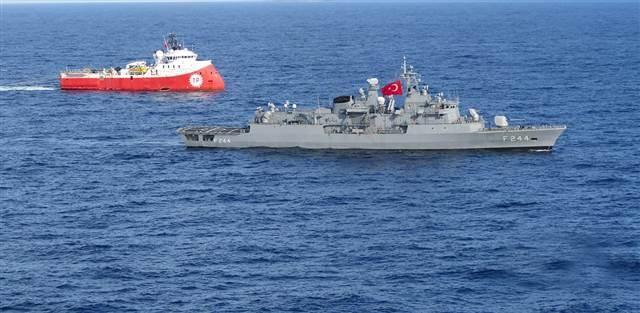
Russian Foreign Ministry spokeswoman Maria Zakharova slammed on July 17 a conclusion adopted by the EU Foreign Affairs Council on the Turkish drilling activities in the Eastern Mediterranean.
The council decided to suspend negotiations on the Comprehensive Air Transport Agreement and agreed not to hold the Association Council and further meetings of the EU-Turkey high-level dialogue for the time being.
Speaking at a news conference in Moscow, Maria Zakharova said that sanction is not "a tool of diplomacy" and it cannot be a basis of international politics.
"This [sanction] leads to very deplorable results, erosion of the international law and erosion of the civilized forms of communications, and maybe it sounds like an artistic image, but also leads to dehumanizing of the international processes in the sense that countries and people become angry," she said.
Zakharova added that people understand that talks can lead to mutually acceptable solutions but they do not understand if some countries use their power, gained by "years of colonialism", against other nations.
"Therefore, we have an extremely negative attitude towards sanctions that are not authorized by the [U.N.] Security Council. As a reciprocal measure, we are forced to say that it is a part of the modern reality. But we cannot accept such a unilateral, illegal, aggressive pressure and policy that aims at promoting one's own interests," she said.
Turkey has consistently contested the Greek Cypriot administration's unilateral drilling in the Eastern Mediterranean, asserting that the Turkish Republic of Northern Cyprus (TRNC) also has rights to the resources in the area.
Since this spring, Ankara has sent two drilling vessels-Fatih and most recently Yavuz- to the Eastern Mediterranean, asserting the rights of Turkey and the TRNC over the resources of the region.
The Turkish-flagged drillship, Fatih, launched offshore drilling operations this May in an area 75 kilometers (42 nautical miles) off the western coast of the island of Cyprus.
Athens and Greek Cypriots have opposed the move, threatening to arrest the ships' crews and enlisting EU leaders to join their criticism.